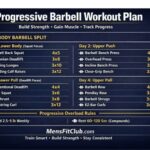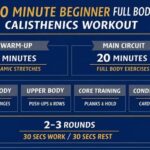By Hazel Bridges
Living with mental illness doesn’t disqualify you from building a future you’re proud of. But the journey to confidence can feel like navigating with fogged-up windows, uncertain, uneven, slow. You don’t need hollow encouragement or sweeping advice. You need rhythm, visibility, and small wins you can feel in your bones. This is a human path. The steps are often quiet and personal. But they stack. And when they do, you’ll notice the ground shifting beneath your own effort, not in spite of it.
Set A Rythm Routines
Forget overhauls. What you need is a repeatable rhythm. Set times to sleep, eat, pause, walk, decide, reflect. Consistency isn’t about perfection, it’s how you signal to your nervous system that life is happening in a steady way, even when it’s not ideal. When your mind is flooded or foggy, routines provide clarity you can borrow from. It’s not magic, it’s infrastructure. Over time, stable daily habits boost your focus, and your self-trust grows with every repetition. It’s how scaffolding turns into structure. No one sees you brushing your teeth at the same time every night, but it counts.
Small Wins Build Momentum
You want to change something big, maybe your career, your health, your relationships. Start smaller. Way smaller. Tiny wins aren’t a detour from your goal. They’re the only road to it. Checking one task off your list today doesn’t just move a project forward; it recalibrates your relationship with success. Even ten seconds of action creates psychological inertia that helps carry you toward the next move. That’s not hype, it’s chemistry. Tiny achievements spark positive feedback loops that build internal momentum faster than motivation ever could. So yes, make the list. Cross off “put on shoes.” Watch what happens next.
Exercise To Anchor Confidence

Exercise isn’t about chasing an image. It’s about anchoring your body to the present, and giving your nervous system a place to recalibrate. You don’t have to “get fit.” You have to move. Stretching on your bedroom floor counts. Walking around the block counts. Yoga in pajamas absolutely counts. The win isn’t distance, it’s the signal you send to your own physiology: “I’m here. I’m still moving.” Over time, regular movement uplifts mood and self‑esteem even when the rest of your world feels unstable. The body gets it before the brain does. Trust that. Build from there.
Compassionate Inner Voice
The voice inside your head isn’t just commentary, it’s architecture. If your inner voice is brutal, your emotional foundation will crack under stress. Building confidence means shifting that voice from critic to companion. You are not lazy. You are not broken. You are moving through things that most people avoid naming. That’s not failure. That’s effort. When you practice redirecting that voice, out loud, on paper, or with a therapist, you’re rewiring more than thoughts. Self‑compassion strengthens emotional resilience and makes hard things possible instead of unbearable. It’s not fluff. It’s the floor beneath your next step.
Community Sparks Belonging
Confidence doesn’t live in isolation. You build it in mirrors, real ones, reflected through other people. Being around those who see you as capable, funny, reliable, brilliant, kind, especially on days when you don’t, can stabilize your sense of who you are. But this doesn’t require a big social circle. Start with one space, one person, one interaction where your value is reflected back without performance. Whether it’s a peer support group or a game night with someone who gets it, supportive networks reinforce self-worth in ways solo effort can’t match. You weren’t meant to carry this alone.
Goal-Focused Confidence
A goal isn’t a test. It’s an orientation. The clearer you are about what you want to move toward, the easier it becomes to structure your energy around it, even if the steps are small or slow. This is where confidence changes from feeling to function. Make your goals visible. Write them. Break them into parts. Build systems that reward movement, not speed. The shift happens when goals stop being abstract wishes and become maps. And when those maps have turns and pauses, not deadlines and shame spirals, you stick with them longer. Realistic goals fuel a sense of agency that builds momentum more reliably than ambition ever will.
Back To School Flexibility
If the next version of you includes more skills or a new career, school might be calling you back, not as a restart, but a recalibration. Whether you’re aiming for a role in education, healthcare, business, or tech, the right program can align with the vision you’re building, and you can discover more here. The best part? You don’t have to choose between learning and living. Many flexible online degree programs let you progress at your own pace, without derailing the rest of your life. It’s not about proving something to anyone else. It’s about choosing what comes next, on your own timeline.
Living with mental illness doesn’t mean delaying your goals, it means approaching them with tools that honor your reality. You don’t need grand reinventions. You need rhythm, community, compassion, and a steady link between action and identity. Confidence doesn’t arrive all at once. It accumulates. Quietly. In routines you keep, in goals you set, in conversations where someone says “me too.” And in those moments, something unlocks. Not because you’ve become someone new. But because you finally get to live like the person you’ve been becoming all along.








